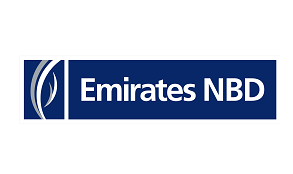 GCC equity markets bounce back strongly as profits surge
GCC equity markets bounce back strongly as profits surge
- India boosts bank lending to long-term infrastructure projects
- Major central banks remain accommodative
- Watch US inflation data for clues to the future trajectory of interest rates
______________________________________________________________________
GCC corporate profit growth exceeds corporate revenue growth, suggesting costs well contained
Global equities shrugged off news that the US had increased sanctions on Russia, even as a Malaysian Airways airliner was shot down over Ukraine. GCC markets had a stellar week: Dubai +7.2%, Abu Dhabi +3.8%, Qatar +2.8%, Saudi Arabia flat. This means the major GCC equity market Indices have broken above their 50-day moving averages, backed by strong corporate earnings.
In the UAE, the Securities and Commodities Authority (SCA), the main equity market regulator, issued a statement saying it was establishing a new committee to ensure the soundness and integrity of share trading and prevent any manipulation of stock prices. Share trading activity was suspended in construction major Arabtec pending clarifications on its ownership structure.
In Qatar, Doha Bank announced profit growth ahead of consensus forecasts based on positive loan growth. With a 7.5% expected dividend yield in 2014 – the highest amongst EMEA Banks – it remains one of our top picks. Saudi petrochemical companies continue to post strong profits with SABIC growing its net income +7% (y/y) on account of higher production and sales volumes. As oil prices have surged on geo-political tensions, the fact that domestic feedstock prices are below global prices confers a significant cost advantage on GCC chemical companies.
For the MENA region quarterly earnings growth (+9%) is projected to outpace revenue growth (+4%), implying improving margins, with both actual revenue and net income above Bloomberg consensus estimates. The UAE and Saudi Arabia are expected to see healthy quarterly revenue growth (+5%) and net income growth (+4% and 5% respectively).
The Reserve Bank of India boosts lending to infrastructure projects
There were a number of initiatives from the Reserve Bank of India (RBI) to channel bank lending to sectors hitherto starved of funding flows. Banks are now allowed to sell long-term bonds which are exempt from reserve requirements, to boost funding for infrastructure and affordable housing. The RBI also paved the way for niche banking by issuing draft guidelines for setting up small banks. The Securities and Exchange Board of India concurrently released draft regulations on the setting up of Infrastructure Investment Trusts.
New round of sanctions on Russia corporations takes some steam out of emerging bonds
Credit markets weakened given escalating tensions in Ukraine, as well as continued military action in the Gaza strip. Investors flocked to safe-haven assets and US Treasuries rallied to yield 2.45 %; bond spreads however remained largely unaffected, with pockets of weakness mainly in high beta sovereigns such as Russia.
The United States further imposed sanctions on Vnesheconombank (VEB), Gazprombank, Novatek and Rosneft preventing them from tapping international capital markets going forward. Russian 5 year credit default swap (CDS) spreads have spiked to 208 from 170 basis points. More sanctions could be in the offing after the downing of MH17.
However existing bond and securities holders should not be affected significantly. Asset prices of many outstanding bonds have already declined as investors and asset managers have been selling and deleveraging positions. The sanctioned list of issuers and corporations will no longer be able to issue bonds or raise loans in western markets. These measures have had an impact on investors’ sentiment already.
On the primary issuance front Ivory Coast launched a $750 MM, 10-year sovereign bond at a coupon of 5.375% (issue price 98.108). South Africa also raised two tranches of 12-year and 30-year sovereign maturities: the €500 MM, 12-year maturity was launched at 225 bps over equivalent benchmark (coupon 3.75 %), whereas the $1BN, 30-year sovereign was priced with a coupon of 5.375%.
Regional bond markets continue to operate in subdued mode for the month of Ramadan.
Earnings, deals and central banks boost global equity markets despite US inflation worries
In spite of the Malaysian Airliner being shot down in Ukraine, developed market (DM) equities ended the week on a positive tone thanks to continued good earnings releases and new corporate deals in the US; supportive language by the Fed and the ECB also played a major role.
Global markets are unlikely to undergo severe jolts until these positive factors reverse course. While markets may get volatile ahead of US inflation data out this week, which could portend higher short-term interest rates and a stronger USD ahead, we think mild wage growth in the US will prevent the Fed from raising rates until well into 2015.
Janet Yellen and Mario Draghi – Fed and ECB chief respectively – both spoke the same language in press conferences, confirming the need for monetary stance to be accommodative for longer due to excessive slack in the US and the Eurozone economies. While in the US inflation does not seem to be a problem yet, as wage growth is pretty constant, in Europe inflation continues to be too low, so markets are expecting some form of quantitative easing from the ECB. Yellen and Draghi also pointed to continued growth in their outlook for the economy, with some downside risks in the case of Europe.
An underwhelming growth story in the Eurozone with interest rates depressed for longer, calls for a defensive equity strategy. High-dividend-yielding stocks will outperform due to their higher cash flows; they are in demand from investors preferring known dividends over rather nebulous potential capital gains.
In China more of the same story is unfolding: Hong Kong equities have rallied low double digits since March, as central authorities have made more money available via easier lending. This in turn supports economic expansion – Q2 GDP beat expectations running at 7.5% – perhaps at the expense of more bad corporate debt. Huatong Road and Bridge Group, a major construction services company, warned of default after the CEO was put under investigation.
We continue to advise an overweight equity stance versus bonds justified by buoyant DM economies and see room for dividend yielding stocks to outperform. We would hedge any euro exposure and are still wary of China-centric EM equities.












